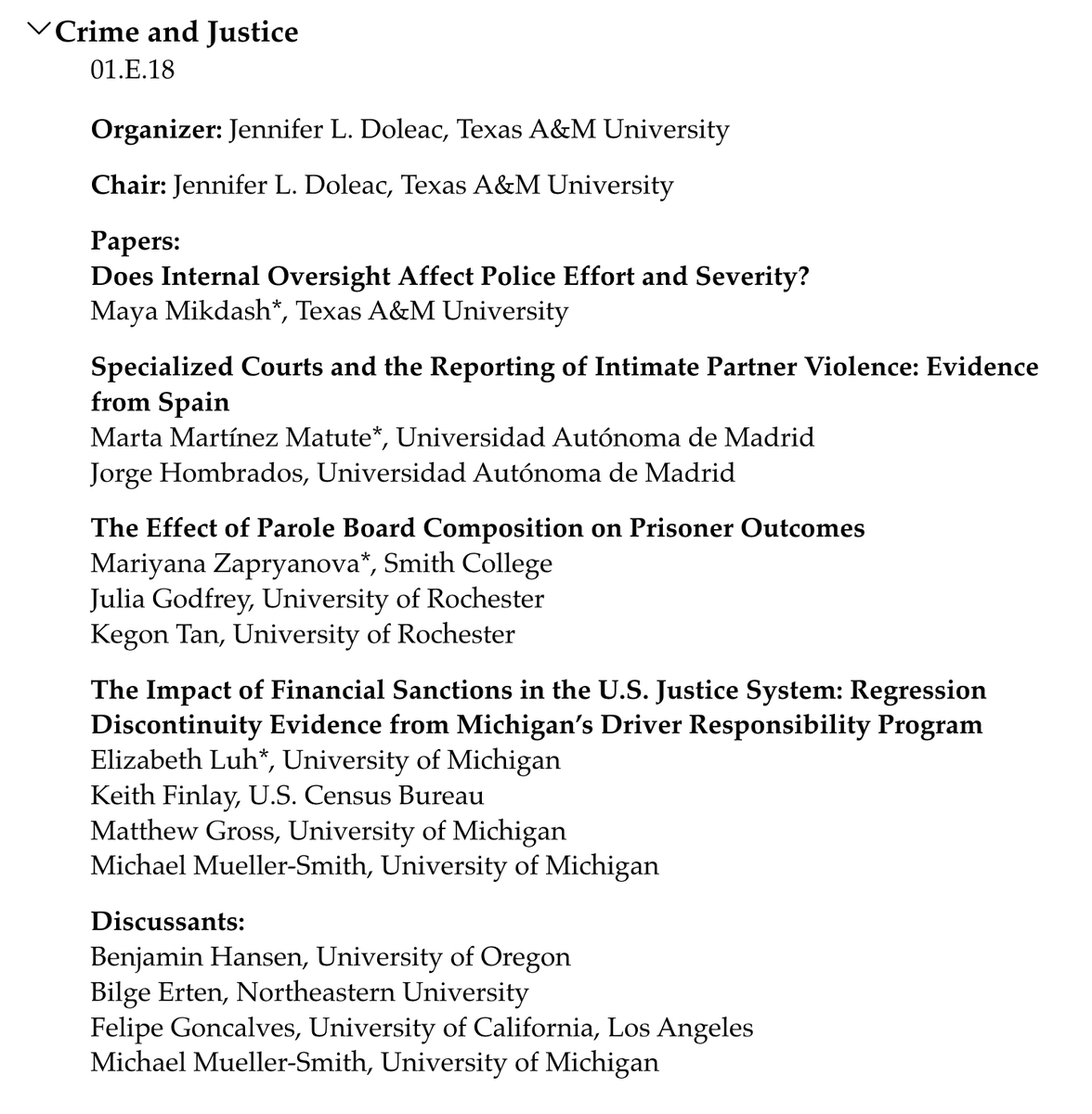This paper is officially forthcoming at AEJ: Applied!
“The effects of DNA databases on the deterrence and detection of offenders,” joint work with @annesofieanker & @r_landersoe.
aeaweb.org/articles?id=10…
Here is a thread describing what we do and what we find:
“The effects of DNA databases on the deterrence and detection of offenders,” joint work with @annesofieanker & @r_landersoe.
aeaweb.org/articles?id=10…
Here is a thread describing what we do and what we find:

@annesofieanker @r_landersoe Offender DNA databases are used around the world to catalog DNA profiles of people who have been convicted or arrested for particular crimes. (The details of who is included depend on state or national law.)
The goal is to identify repeat offenders if they commit a new crime — the DNA profiles are compared w DNA profiles from crime scenes. Any matches are sent to local police. This helps identify suspects in cases where the perpetrator wasn’t already on law enforcement’s radar.
This could have two effects: (1) It should increase the probability of getting caught for new crimes — a ‘detection effect.’ (2) When the probability of getting caught goes up, rational offenders should respond by committing fewer crimes — a ‘deterrence effect.’
Do we see these effects in practice? How large are they?
In 2005, Denmark expanded its database from including just a few, very serious offenders in a handful of cases to including everyone who was charged with the equivalent of a felony. We use this policy change as a natural experiment.
(Adding people arrested/charged for crimes, instead of waiting for a conviction, is the current policy frontier in U.S. states. So, the effect of this policy change is also relevant in the United States.)
Implementation was slightly delayed due to summer holidays (yes, police in Denmark take long summer vacations). But within a few months, the share of people charged w a crime who were added to the database went from 4% to 40% — a huge expansion of DNA profiling. 

We use this big jump in the likelihood of being added to the database to measure the effect on recidivism, by essentially comparing similar people charged on either side of the policy reform date.
In more technical terms: We use being charged after the reform as an IV for being added to the database. (We drop those summer holiday months so this is essentially a donut RD.)
The punchline: Being added to the DNA database reduces the probability of a new conviction within the following year by 42%, and reduces the number of new convictions by 49%. These results remain large and statistically significant for at least 3 years after the initial charge. 



Effects are large across many groups — first-time offenders, recidivists, violent offenders, property offenders — but are driven by young offenders (ages 18-23).
We ran a bunch of robustness tests. Two to highlight: Results are similar if we conduct a diff-in-diff analysis instead (comparing less-treated charges w more-treated charges). And if we repeat our main analysis using data from other ‘placebo’ years, we find precise zero effects.
Finally, we use rich admin data to consider non-crime outcomes. For young offenders, being added to the DNA database increased enrollment in education; for older offenders, it increased employment. There's less robust evidence of an increase in being married & living w kids.
We use the precise timing of offenses & charges to separate the detection & deterrent effects, & estimate an elasticity of crime with respect to the probability of getting caught: -2.7. This is a big effect but not implausible given previous work of the effect of police on crime.
Overall, we find that expanding Denmark's DNA database to include people charged with a felony had big public safety benefits. The financial costs of this technology are relatively low.
Relative to many other technologies used by police (cameras, GPS monitors), collecting saliva samples & using DNA to generate IDs seems pretty non-invasive to me, but others might disagree. (Privacy costs are tough to estimate -- a good topic for future work!)
One more thing: Many will read this & think expanding DNA databases implies expanding the reach of the CJ system. But I think it could do the opposite: DNA databases could help us *reduce* policing and mass incarceration, because they seem to deter crime so effectively.
• • •
Missing some Tweet in this thread? You can try to
force a refresh










